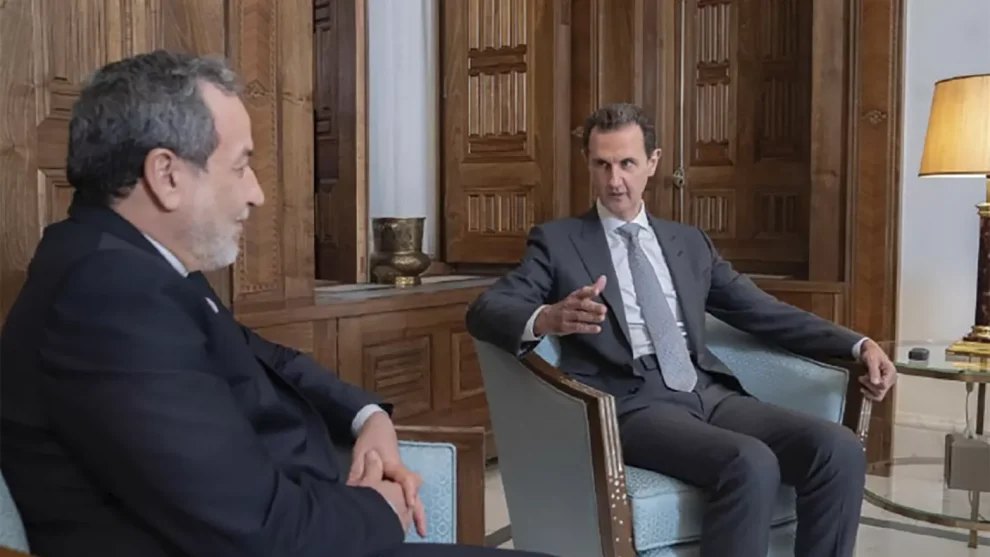Iranian Foreign Minister Seyed Abbas Araghchi in an exclusive interview with the Egyptian Al-Ghad network on the sidelines of the D-8 Islamic developing countries summit outlined and expounded the Islamic Republic of Iran’s positions regarding regional and global developments as well as the relations between Iran and Egypt.
Iranian Foreign Minister Seyed Abbas Araghchi, in an exclusive interview with the Egyptian Al-Ghad network on the sidelines of the D-8 Islamic developing countries summit, outlined and expounded the Islamic Republic of Iran’s positions regarding regional and global developments, as well as the relations between Iran and Egypt.
Araghchi highlighted the long-term American-Zionist plot to weaken and disintegrate major Islamic countries so the occupying regime would dominate the region.
He emphasized, “The behavior of the Zionist regime during the Gaza war and the genocide of more than sixty thousand women, children, and civilians in Gaza and Lebanon, as well as its aggression against Syria and the destruction of its defensive, economic, and infrastructural foundations, illustrate the accuracy of Iran’s warnings about Israel’s threat to the entire region.”
The foreign minister highlighted Iran’s presence in Syria in advisory roles to fight Daesh and other terrorist groups, through the sacrifices of the IRGC’s Quds force commander, Martyr Lieutenant General Qassem Soleimani, warning about the resurgence of the terrorism threat to Syria due to the country’s fragmentation, which poses a threat to all countries in the region.
Araghchi described Iran’s support for Syria not as support for an individual, but for the people, national sovereignty, and territorial integrity of Syria against Zionist and terrorist threats.
He added, “The Islamic Republic of Iran offered recommendations within the framework of the Astana process and in bilateral negotiations on how to interact with the people and political opposition groups, but the Syrian government acted independently and was not under the control of Iran or Russia.”
The foreign minister stated that the main purpose of forming the Resistance Axis in the region was to fight and confront the Zionist regime’s occupation and aggression in Palestine and to restore the Palestinians’ rights.
He emphasized that despite sustaining losses in the developments following the Gaza war and the martyrdom of some its leaders, the resistance inflicted heavy blows on the occupiers, which forced the Israeli regime to negotiate and accept a ceasefire in Lebanon.
The head of Iran’s diplomatic service described resistance as “a noble cause and sacred school against the occupation and crimes of the Zionist regime, which does not perish with the assassination and martyrdom of its leaders and gets stronger each time by recovering itself.”
Araghchi also dismissed the perception that resistance groups are followers and under the command of Iran as incorrect and noted that the Islamic Republic shares the goal of fighting the Zionist regime and supporting the Palestinian people with the components of the resistance front, stressing each resistance group operates independently.
Furthermore, Araghchi praised the civilizational and historical status of Iran and Egypt, and their important and effective role in the region, emphasizing that boosting cooperation and coordination between the two countries is in the interests of all regional and Islamic countries.
“Iran has always supported Egypt’s efforts to assist the Palestinian people and establish a ceasefire,” he stressed.









